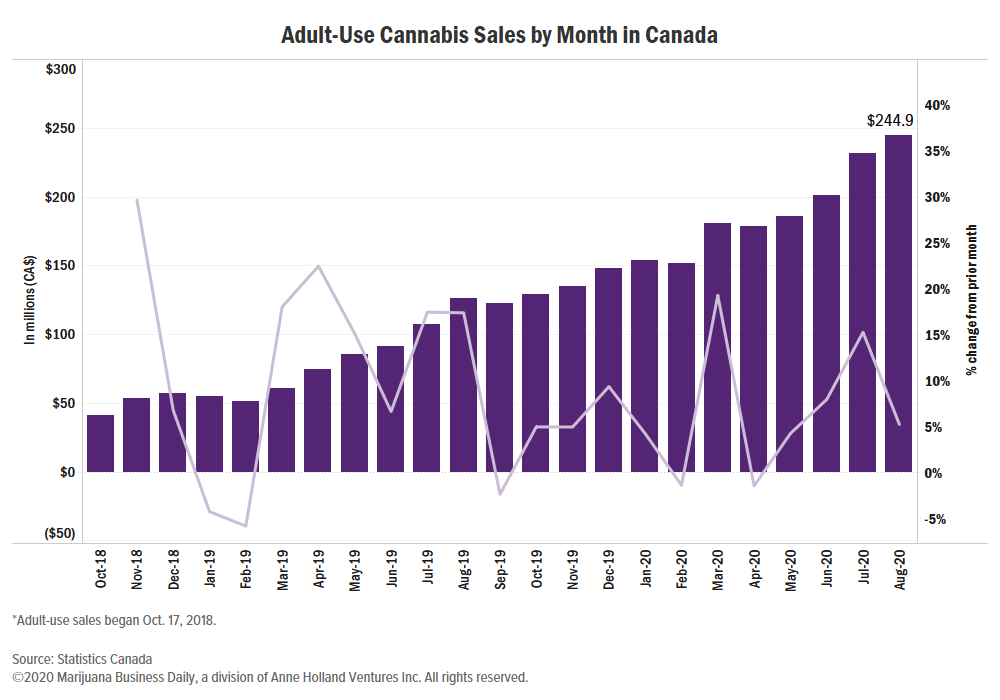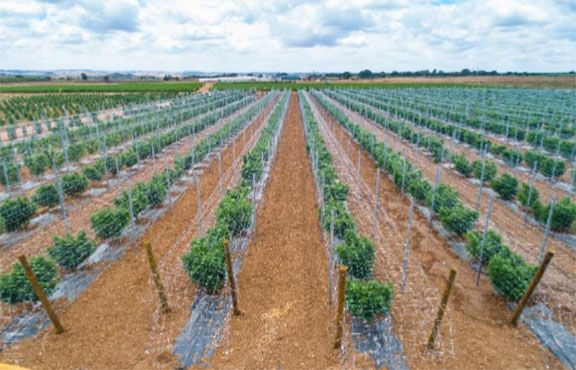Ontario’s provincial police service is trumpeting summer and fall seizures of illicit cannabis plants in Canada’s most populated province, highlighting large seizures of marijuana from “52 large-volume illegal operations” between July 1 and Oct. 15.
Detective inspector Jim Walker of the Ontario Provincial Police (OPP) organized crime enforcement bureau told Marijuana Business Daily that the “vast majority” of the 52 seizures involved the abuse of registrations under Health Canada’s personal and designated growing regime for medical cannabis, a system that predates the legalization of recreational marijuana in 2018.
Producers in the regulated market are locked in heated competition with illicit businesses.
Canadian consumer spending on illicit adult-use cannabis was roughly equal to adult-use cannabis purchases in regulated channels, according to Statistics Canada estimates.
The OPP arrested a total of 195 people after executing warrants against the 52 operations, the force said this week in a media release summarizing its recent cannabis seizures.
“The targets were involved with large-scale, sophisticated illegal cannabis production, sale and distribution operations,” according to the OPP release.
“These criminal enterprises exploit Health Canada registrations to produce or designate someone to produce cannabis for medical purposes by diverting cannabis authorized to be grown for medical purposes to the illegal market.”
The OPP said it has seized more than 122,000 illegal cannabis plants in Ontario since July, along with 36 firearms.
The police force said the cannabis seized is worth more than 143 million Canadian dollars ($109 million).
Images released by the OPP show large-scale outdoor and indoor growing operations, along with extraction equipment and firearms.
“Because of the lack of oversight, they’re overgrowing that designated amount,” Walker said of Health Canada’s designated medical cannabis grower regime.
“So what we’re seeing is, they look like cannabis farms. So the question we get is, ‘What makes them illegal?'” he continued.
“It’s because none of that, in a lot of these cases, is ever destined for anybody for a medical purpose. It’s being diverted to the black market.”
Walker observed that Canada’s federal Cannabis Act is due for a three-year legislative review beginning next October.
In comments emailed to MJBizDaily, Health Canada spokeswoman Tammy Jarbeau said it is illegal for individuals with a personal or designated medical cannabis production registration to distribute or sell cannabis to anyone besides themselves or their designated recipient.
She also noted that Health Canada’s personal and medical cannabis production regime resulted from multiple court decisions that “established the right of individuals to have reasonable access to cannabis for medical purposes.”
“As in any regulatory framework, there will be instances where individuals choose to operate outside of the law,” Jarbeau wrote.
“Health Canada is in regular contact with law enforcement agencies, including the OPP, regarding enforcement activities.
“In instances where evidence of illegal activity is brought to our attention, (Health Canada) takes appropriate action, which could include revocation or refusal of registrations.”
Jarbeau added that Health Canada might inspect personal or designated medical cannabis production sites to verify compliance.
“Generally, inspections of registered individuals or designated producers are conducted at sites that may pose a higher risk such as those with a high number of plants or multiple registrations, or those where (Health Canada) has received a number of complaints from the public.”
Solomon Israel can be reached at solomon.israel@mjbizdaily.com




